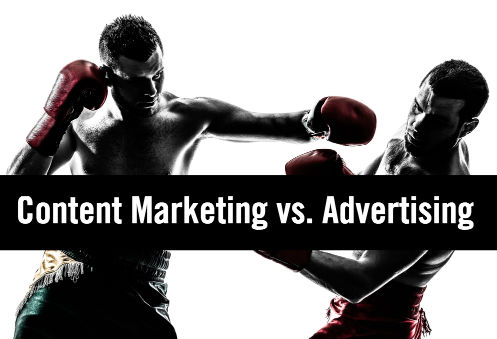
Recording last night’s BeanCast, Altruism or Consumerism, hosted by the talented Bob Knorpp brought up the topic of Content Marketing and whether paid placement of content is just advertising – among many other topics from Dove to Amazon Dash.
This content vs. ad question was inspired by commentary from Mitch Joel in his post, Your Content Is Kidding No One where he states, “if you have to pay to have it placed, it’s not content. It’s an ad.”
While I agree with what Mitch says in the post in terms of brands failing to create engaging, share-worthy and conversation-starting content, I’m not on board with the pay to play statement.
Whether you call it content or advertising, the purpose of media and information created for marketing is to attract, engage and persuade people to take action – purchase, engage, advocate. Either these efforts are effective at accomplishing business objectives related to a target audience, or not.
The big disconnect in discussions about topics like content marketing vs. advertising is that they almost always occur through a siloed perspective. For example, content marketing vs. native advertising.
Content or ad is like saying, left hook vs. right cross. To win the fight, you’ll probably need both.
Customers are more sophisticated in how they discover and consume information than ever and the expectations to engage with brands is also varied It’s not just about offers and transactions anymore. Brands need to meet those customer needs with content that solves an information problem, leading the customer to the next step in the buying experience.
Imagine the customer journey: It might mean initial discovery occurs through reading sponsored content on a magazine website followed by a search on Google for the topic where the same brand is running ads and ranks organically.
Consumption leads to action. Discovery and consumption of owned content through search can lead to an action like a trial, content download, registration for an event or subscription to more useful content. At any time during this multi-touch experience across owned, earned, paid and social media, the buyer is presented with an opportunity to transact.
Compare that to simply producing owned content hoping that buyers will be inspired by that information and experience alone. Or assuming that ads or sponsored content alone will provide the marketing knockout you’re looking for.
Content Marketing as useful, relevant information that inspires action is successful when implemented from the perspective of the buyer. Marketers have to consider: What content experiences can the brand create through owned, earned, paid and shared media that will attract, engage and inspire buyers to take action?
“Ad” does not automatically mean “crap”. Likewise, “content” does not automatically mean “success”. Whether it’s content marketing, native advertising or brand journalism, effectiveness is directly related to the relevance and value created for buyers.
To see examples of successful content marketing programs with assets and performance data, check out these posts:
- 20 B2B Content Marketing Examples and Case Studies
- 12 B2B Content Marketing Examples and Case Studies
- 11 Examples of Killer B2B Content Marketing Campaigns Including ROI
Do they involve useful content? Do they include ads? Yes and yes! Combination, knock out.
At the end of his post, Mitch asks readers a great question: Write down the last 2-5 pieces of content that really connected with you. Now look at the last 2-5 pieces of content your brand has published. What looks like an ad and what looks like useful content?
I think that’s a great exercise for both brands and their customers, not just marketers. Stay customer focused, vs. focused on the disciplines the agency or internal marketing team are most comfortable with.
What do you think? Is content promoted through paid placement no longer content marketing, but advertising? Does it matter?
Photo: Shutterstock


